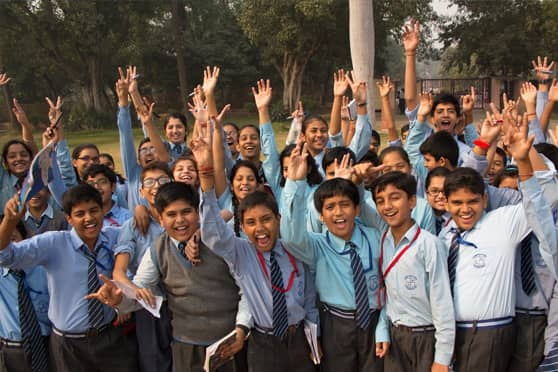
Push To Coaching Culture To Improve Accessibility: Private Schools Divided About Delhi Virtual School
- Happenings
- 01 Sep, 2022
- 1207
Private schools here have mixed views about the Delhi Model Virtual School launched Wednesday with some hoping it would increase access to education while others worried it would spur coaching culture and limit chances of developing social skills. Chief Minister Arvind Kejriwal launched the "country's first virtual school" the Delhi Model Virtual School (DMVS) and said students from across India will be eligible for admission. Affiliated to the Delhi Board of School Education, the school is for classes 9 to 12.
The National Progressive Schools' Conference (NPSC), a body of over 120 private schools in Delhi, said that virtual schools will "hand over school education to coaching centres on a platter". "A school is not a place to achieve only cognitive competency. It is a happy space where socio-emotional well-being is also taken care of. Children acquire life skills like collaboration, empathy, problem-solving and media literacy which are important to succeed in life. "We have a huge digital divide in our country. During the pandemic many children were deprived of classroom teaching," NPS Chairman Sudha Acharya told PTI. She said that children are already leaving school after Class 10 due to the Common University Entrance Test (CUET) with many having joined coaching and dummy schools.
According to Pallavi Upadhyaya, Principal of Delhi Public School (DPS), Rajnagar Extension, the flipside is that the attention span of students in an online class is shorter than in offline classes. "The concentration level is also quite low. Children complain of fatigue and exhibit listlessness, online learning has been and will be a challenge for those who cannot afford laptops or smartphones. It would be quite interesting to see how the government bridges the gap between affordability and opportunity for this section of the society," she said.
Anshu Mital, Principal of MRG School, Rohini, said the virtual school will be helpful for students who cannot get enrolled in traditional schools and attend physical classes due to lack of time, familial responsibilities, long-distance travelling or any other hindrance. "It has been launched with a noble intention, more specifically targeting girls and providing education to all. I hope it receives a warm response from the students and parents, and admission registrations are in huge numbers. It will also be a crucial stepping stone in achieving good-quality education for all," she said.
Sangeeta Hajela, the Principal of DPS Indirapuram said that online learning has somehow become a part of people's lives post-pandemic. "It won't be difficult for readers to cope with their academics through this mode. This is an excellent initiative to help those who leave education midway. By this, they will be able to complete their basic education and enter the next stage of degree education even without going to school regularly. "The government might have a challenging time enforcing this initiative. But it can be met with efficient execution and monitoring," she said.
Chief Minister Arvind Kejriwal said the first virtual school in the country will prove to be a milestone in the education sector. Classes will be online and recorded lectures will also be uploaded online, he said. "Launching the virtual school model is a laudable move. Online learning is cost-effective, easily accessible and proactive. It will contribute to the greater integration of children into the education milieu of this country. "Such a move was a much-needed reform which had to be brought to promote student heterogeneity and amalgamate students from different social stratifications," said Divya Jain, the Founder and Director of The Class of One, an online-only school. Academicians at Delhi University too have mixed feelings over the virtual school.
"It will give an opportunity to students from across India to study the curriculum that has been praised around the world. This is a welcome move if the Delhi education model is applied in different states, it will help in the country's growth," said Hansraj Suman, an Associate Professor at Delhi University. The Professor, however, is also of the view that until the "crippling" digital divide in India is addressed, the virtual school won't be a success. A section of academicians also fear that virtual school will ruin the education system and deprive students of gaining skills.
"School provides a new environment for students to learn something new. Education is a community activity and you can not have education at home," opined Abha Dev Habib who teaches Physics at Miranda House. "If the Arvind Kejriwal government cares about extracurricular activities how will education at home help? They should provide supplementary study material but altogether turning education online is not a good idea," Mr Habib said.
By making students take online classes, a generation will be created that will be isolated, depressed and have no ability to interact with people," Mr Habib added. Echoing a similar sentiment, Sudhanshu Kumar, an Assistant Professor at the Delhi University said while parents around the world are making efforts to reduce the screen time of their children since it impacts the IQ, "India is moving backwards".
"There is no alternative to physical classes, it will be a betrayal of the poor children as their foundation will be weakened. Moreover, some students will lag in several social skills compared to those who opted for traditional schooling," he said.
